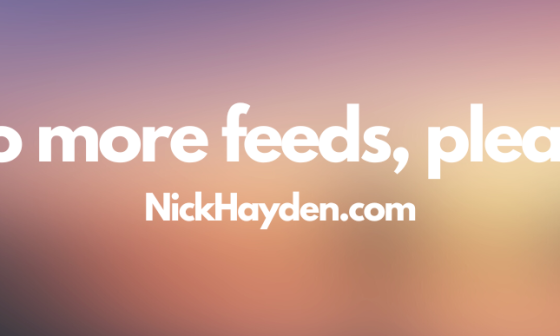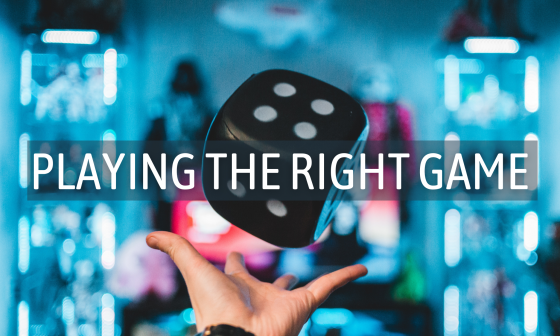It’s my belief that streaming and video platforms are going to create better experts over time and push most fields into some pretty impressive areas compared to today. In this post I will look at a few different platforms and how they help people learn, the biggest focus is jiu jitsu but I also discuss Javascript and technology learning since its another area I’m familiar with.
I find it beneficial to gather information from multiple sources when studying a sport or skill I am interested in, as it allows me to gain a diverse range of perspectives and knowledge beyond a single sports league or brand. It’s my belief that there are more jiu jitsu experts since the rise of FloGrappling as people can now watch from multiple competitions and formats which didn’t exist five or ten years ago. People watching this content are now able to watch the sport forever since there is such volume of content on FloGrappling and other streaming platforms like BJJ Fantatics or UFC Fight Pass.
If we wind back the clock 20 years and think about trying to watch a jiu jitsu or UFC match, the content just isn’t there and you really needed to know someone that had access to it either through an obscure VHS company or their cousin knows a guy. When you were the person recording the content you needed to have access to it and be ready to record onto your VHS or DVD player. Once you’ve recorded that content you would then have that one copy and its only of a single event however with a platform like UFC FightPass you’re able to watch whatever matches you want whenever you want and because they’ve been producing content faster than you can watch it the content is essentially limitless. These organisations are able to produce much more content than they could ever get onto TV so when we compare it to recording on VHS there’s no way the past can keep up with the future.
For example, if you wanted to record Australian football games on any given regular season weekend you would have about six games and you would need to spend your entire weekend recording them. As a football recording enthusiast you could look for local or state league games but ultimately it’s not that much content. In jiu jitsu terms if we then look at platforms like FloSports and Kayo you’re able to watch every match from every tournament which gives you hundreds of matches, the football equivalent would be every game from high school to the AFL. This gives us a wider range of amateur, semi-pro and professional content that we can watch to boost our skills and understanding of the sport.
Technology and computer science is another area where expertise is growing due to better teaching methods and a wider range of available content. When I was first starting out there were a few tutorial sites that would run you through tasks, we also had magazines or books that might even come with a physical disk you would put into your computer (I know..). Now that we have access to hundreds of thousands of content creators that are teaching in their own way a person can dive into whatever they want, whenever they want. A person that wants to learn JavaScript could start on a Friday morning with learning how to log data into the console and by the end of the weekend they could be in the runtime and very low level features. If a person is bored they can sit on the couch and watch conference videos where they previously would be on someone else’s schedule and need to buy conference tickets.
As it becomes easier to fully immerse oneself into a field through these different platforms it becomes more common to create experts through that content. There are people that will go all in on one kind of content and watch endless hours of different creators in a field and at the other end we have people that have no real interest in watching much content outside of some Instagram reels that popup in their feeds. When anecdotally looking at content consumers the majority trend I found was watching less content particularly around hobbies like jiu jitsu where they don’t want to turn a fun after-work activity into a grind that consumes their life since that would take the fun out of the hobby. When immersed into a hobby with established content creators it becomes easier to passively consume some content since social platforms make it readily available.
What begins to happen with a larger range of available content is that more people can become experts and the people that deep dive on the content become better experts than they previously could. An example of this is a young person who is getting into Muay Thai and has found that they are improving quickly through their training. This person was told by other, more experienced training partners that they can improve faster by watching professional matches and studying fights. UFC FightPass and OneFC are the two streaming platforms here that now have more content than this person could ever watch, they are able to view high quality matches both in terms of video/audio quality and the fights themselves. All of this means that our new fighter is able to specialise and deep dive into a topic that interests them with relative ease.
The new learner is able to capitalise on their excitement and energy when it comes to studying their chosen field. I know that when I start learning something new I spend so much time consuming as much content and knowledge as I can which will eventually wane once I build my base up.
One interesting part of this early study and introduction to a field is that the learner doesn’t develop tacit knowledge in the field since the experiences aren’t their own. Briefly, tacit knowledge is defined as the unknown knowns, when an expert in a field is able to make decisions quickly and correctly without fully understanding why they are making the decision. In online learning this means a person can watch hundreds of fights or read programming books but since they’re not actually building anything or competing they don’t have the deeper understanding and feeling that creates true expertise.
It’s my belief that tacit knowledge can be developed outside of practice for some fields but not others. A chess example that springs to mind is Magnus Carlsen being able to identify a game by the board position and have understanding of the next possible moves. He has obviously trained and competed for many years in chess but I think someone could develop similar knowledge without requiring the same competition experience since the studying of chess is so closely aligned to the playing of chess.
Another thought I want to look into more is whether or not this sort of content availability will have an unexpected consequence of people over-specialising when they might not necessarily want to. If I was 19 years old again and starting out in jiu jitsu I would be watching a lot of FloGrappling and since I have 24/7 access I’m not branching out either to different creators or fields. On sites like YouTube this is less of a risk since the algorithm will start recommending related creators and an ecosystem can begin to be built.
Lastly, pricing is another consideration since people are happy to pay an organisation like Flo $200 a year but won’t pay for YouTube Premium or donate to an individual creator. There are a lot of companies in the creator economy now and I’m sure we’ll see some major success stories coming in the next 10 years as creators become our main way of consuming content.
I would encourage you to be looking at other adjacent fields and make sure that you’re not getting locked into just one set of creators or even just one field. Very easy to get locked into just one topic or sport but I don’t think that makes you a fuller person however you’ll probably be very good at your sport or topic of choice.
Do you have some ideas and thoughts on this topic? Reach out at https://twitter.com/NickCodercise and find my other socials over at https://Linktr.ee/NickHayden






